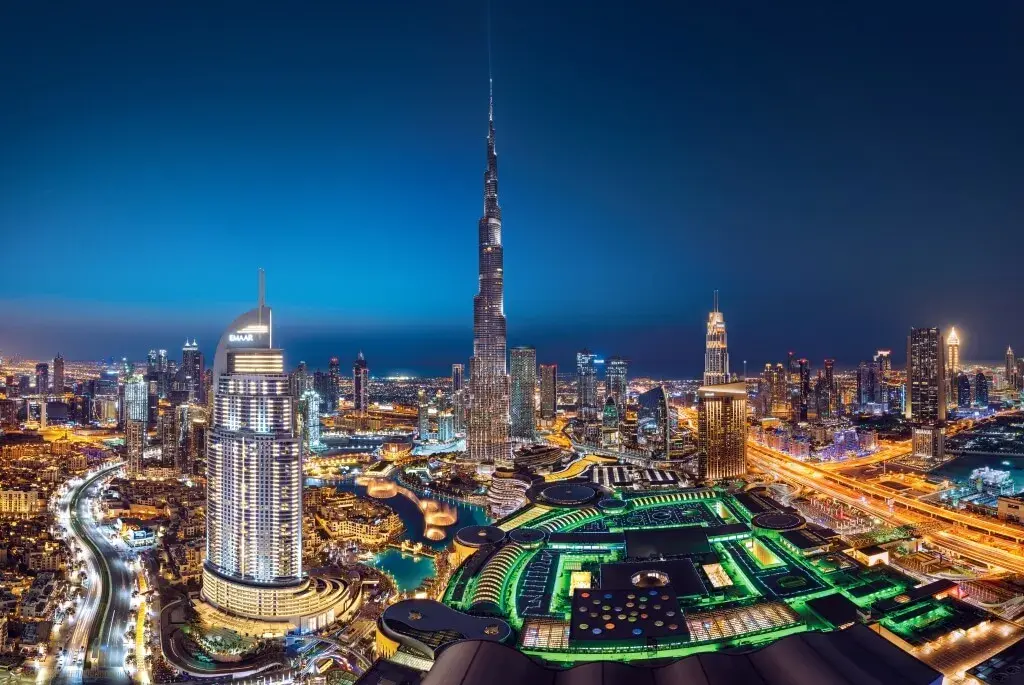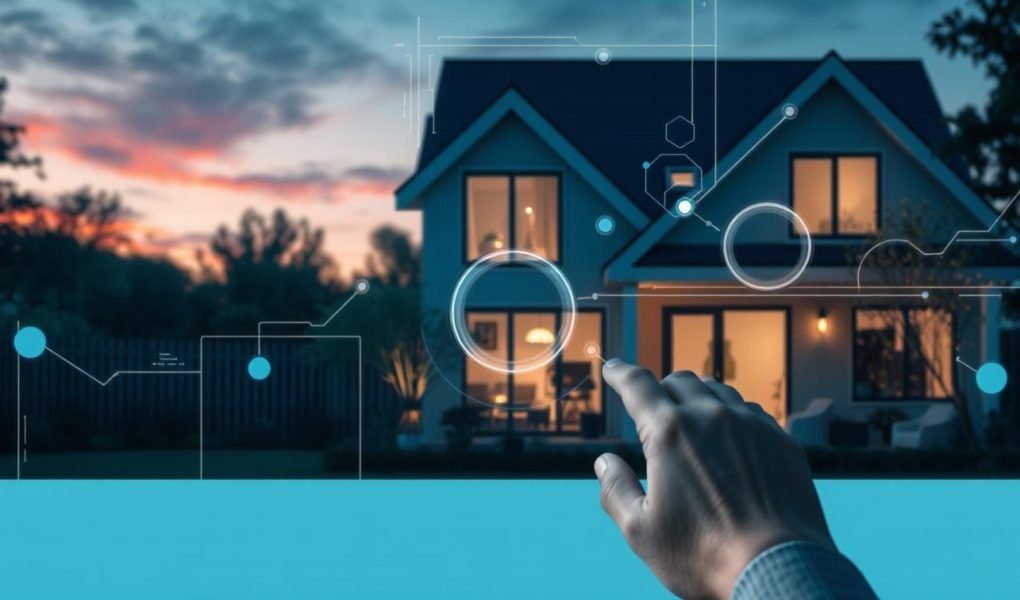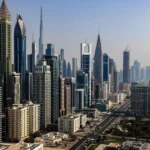Now Reading: Circular Economy Practices in UAE Real Estate Development
-
01
Circular Economy Practices in UAE Real Estate Development
Circular Economy Practices in UAE Real Estate Development
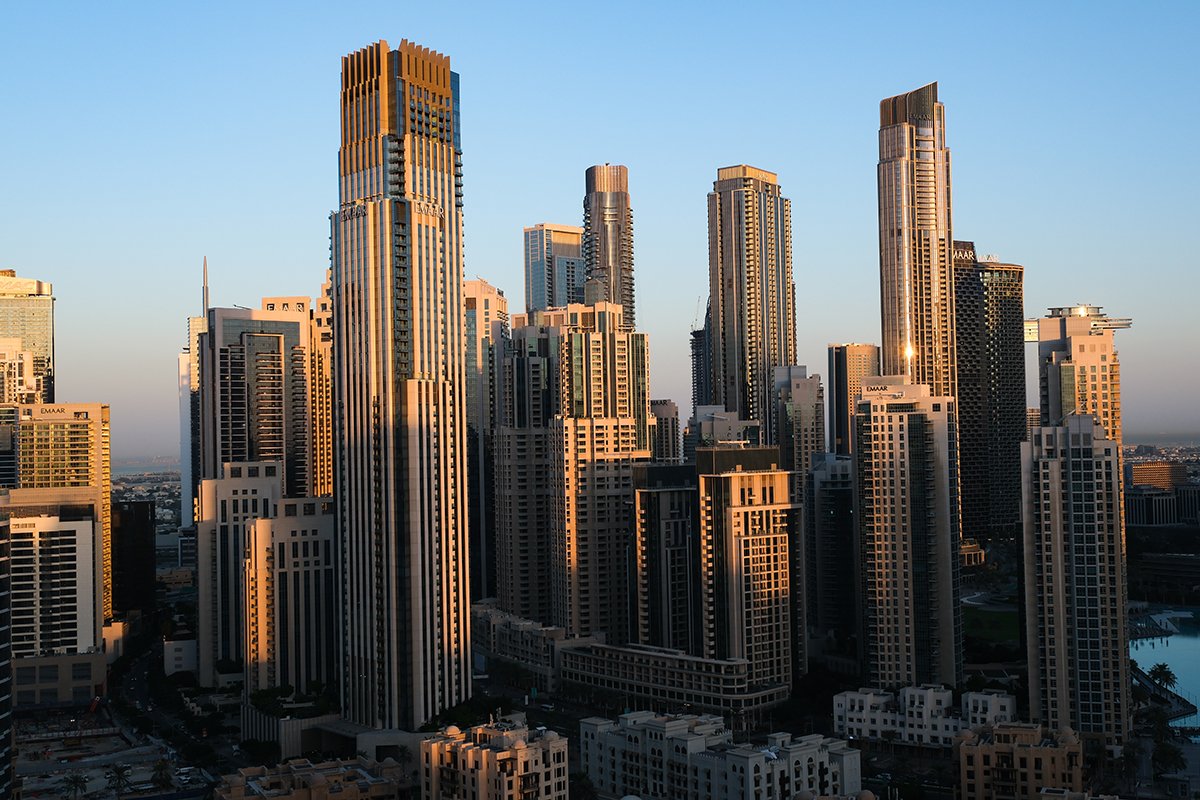
Circular economy UAE real estate is transforming how developers approach construction, design, and urban planning. By prioritizing resource efficiency, waste reduction, and sustainable materials, circular economy principles are helping the UAE create environmentally responsible and economically viable real estate projects.
This article explores the concept of circular economy in real estate, highlights its adoption in UAE developments, and examines the benefits for developers, investors, and communities.
Understanding the Circular Economy in Real Estate
The circular economy is a sustainable approach aimed at minimizing waste, maximizing resource efficiency, and keeping materials in use for as long as possible. In real estate, this involves:
- Reusing and Recycling Materials: Using reclaimed steel, concrete, and wood for new constructions.
- Designing for Longevity: Creating buildings that can adapt, upgrade, and endure.
- Energy Efficiency: Incorporating renewable energy, smart systems, and low-carbon technologies.
- Water and Waste Management: Reducing consumption and recycling wastewater.
In the UAE, circular economy practices are increasingly aligned with government sustainability initiatives, such as the UAE Green Building Regulations, Dubai 2040 Urban Master Plan, and Abu Dhabi Vision 2030, promoting greener urban growth.
Why Circular Economy Practices Are Crucial in UAE Real Estate
- Environmental Sustainability
Construction is a major contributor to carbon emissions and resource consumption. Circular economy practices reduce environmental impact by promoting renewable materials, recycling, and energy efficiency. - Economic Efficiency
Efficient use of materials, energy, and water reduces operational costs for developers and residents, improving profitability. - Regulatory Compliance
Adopting sustainable practices helps developers meet government regulations and achieve green building certifications like LEED and Estidama. - Market Appeal
Buyers and tenants increasingly prefer sustainable, eco-friendly properties, making circular economy projects more attractive in competitive markets. - Long-Term Resilience
Circular buildings are adaptable to future needs, reducing maintenance costs and extending asset life.
Key Circular Economy Practices in UAE Real Estate Development
1. Sustainable Building Materials
- Recycled Concrete and Steel: Reduces demand for virgin materials.
- Bamboo and Engineered Wood: Renewable alternatives for interior finishes.
- Low-Impact Paints and Finishes: Minimizes harmful VOC emissions.
2. Energy Efficiency
- Solar panels and renewable energy integration.
- High-performance insulation and glazing.
- Smart lighting and HVAC systems for reduced energy consumption.
3. Water Conservation
- Greywater recycling systems for landscaping and sanitation.
- Low-flow fixtures and smart irrigation systems.
- Rainwater harvesting in large-scale developments.
4. Modular and Prefabricated Construction
- Reduces construction waste and speeds up project timelines.
- Allows components to be reused in future projects.
5. Waste Management and Recycling
- On-site recycling of construction debris.
- Circular waste-to-resource programs for operational efficiency.
6. Adaptive and Flexible Design
- Spaces designed for multiple uses over their lifecycle.
- Buildings that can be easily upgraded or repurposed to extend usability.
Case Studies: Circular Economy in UAE Real Estate
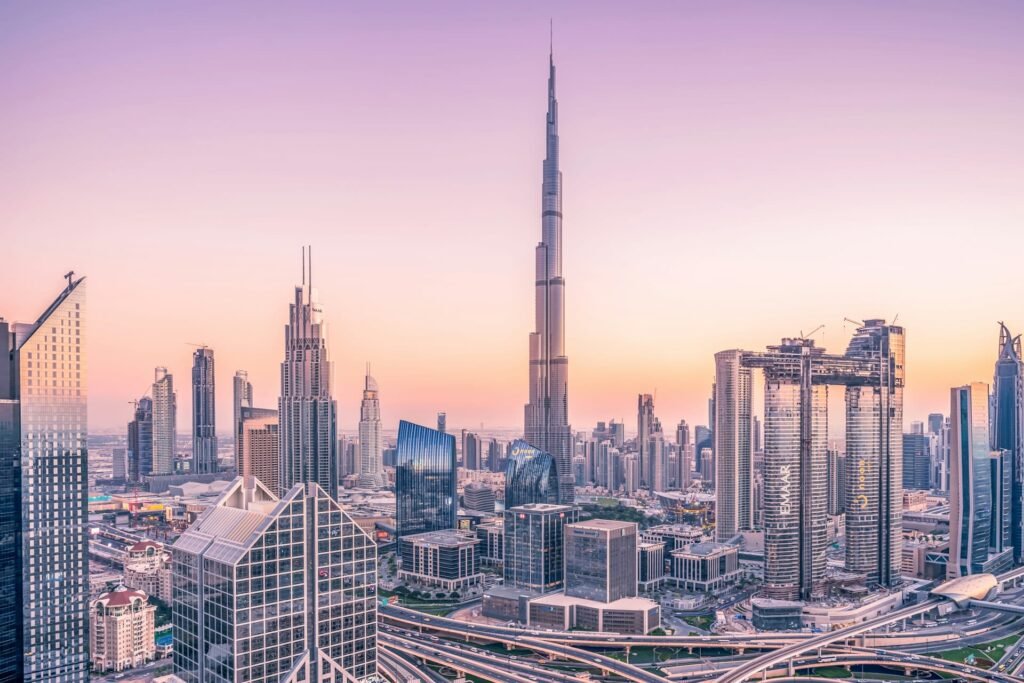
Dubai Sustainable City
Dubai Sustainable City integrates renewable energy, solar-powered villas, water recycling, and waste management systems. The development exemplifies circular economy principles in large-scale residential planning.
Masdar City, Abu Dhabi
Masdar City focuses on energy-efficient design, renewable energy use, sustainable transport, and modular construction. It serves as a global benchmark for circular economy implementation in urban development.
Mixed-Use Developments
Developments in Dubai South and Mohammed Bin Rashid Al Maktoum City increasingly adopt prefabricated construction, recycled materials, and water-efficient systems to meet sustainability goals.
Benefits of Circular Economy Adoption for Stakeholders
For Developers
- Reduced material and operational costs.
- Stronger market positioning due to sustainability credentials.
- Compliance with regulations and green certifications.
For Investors
- Long-term asset value appreciation.
- Reduced maintenance and operational expenses.
- Appeal to environmentally-conscious tenants and buyers.
For Residents and Tenants
- Lower utility bills due to energy and water efficiency.
- Healthier living environment with eco-friendly materials.
- Enhanced quality of life through sustainable infrastructure and amenities.
Challenges and Considerations
While circular economy practices offer numerous benefits, developers face challenges:
- High Initial Investment: Sustainable materials and technologies can be more expensive upfront.
- Limited Awareness: Some stakeholders may lack understanding of circular practices.
- Supply Chain Constraints: Availability of recycled or renewable materials may be limited.
- Integration Complexity: Designing adaptable and flexible buildings requires advanced planning and expertise.
Future Outlook for Circular Economy in UAE Real Estate
- Government Incentives: Increased support for green building and sustainable construction practices.
- Technological Integration: Smart building technologies will further enhance energy efficiency and resource management.
- Investor Interest: Growing demand for eco-friendly properties will drive adoption in residential, commercial, and industrial sectors.
- Urban Planning Alignment: Circular economy principles will shape future city designs, including transportation, infrastructure, and utilities.
Conclusion
Circular economy UAE real estate is revolutionizing how properties are designed, built, and maintained. By embracing sustainability, efficiency, and adaptability, developers can reduce environmental impact, lower costs, and create long-term value.
For investors, residents, and stakeholders, properties developed with circular economy principles offer a blend of financial, environmental, and social benefits. As the UAE continues to prioritize sustainable urban growth, circular economy practices will become central to real estate development strategies, shaping a greener, more resilient future.
Circular economy UAE real estate is transforming how developers approach construction, design, and urban planning. By prioritizing resource efficiency, waste reduction, and sustainable materials, circular economy principles are helping the UAE create environmentally responsible and economically viable real estate projects.
This article explores the concept of circular economy in real estate, highlights its adoption in UAE developments, and examines the benefits for developers, investors, and communities.
Understanding the Circular Economy in Real Estate
The circular economy is a sustainable approach aimed at minimizing waste, maximizing resource efficiency, and keeping materials in use for as long as possible. In real estate, this involves:
- Reusing and Recycling Materials: Using reclaimed steel, concrete, and wood for new constructions.
- Designing for Longevity: Creating buildings that can adapt, upgrade, and endure.
- Energy Efficiency: Incorporating renewable energy, smart systems, and low-carbon technologies.
- Water and Waste Management: Reducing consumption and recycling wastewater.
In the UAE, circular economy practices are increasingly aligned with government sustainability initiatives, such as the UAE Green Building Regulations, Dubai 2040 Urban Master Plan, and Abu Dhabi Vision 2030, promoting greener urban growth.
Why Circular Economy Practices Are Crucial in UAE Real Estate
- Environmental Sustainability
Construction is a major contributor to carbon emissions and resource consumption. Circular economy practices reduce environmental impact by promoting renewable materials, recycling, and energy efficiency. - Economic Efficiency
Efficient use of materials, energy, and water reduces operational costs for developers and residents, improving profitability. - Regulatory Compliance
Adopting sustainable practices helps developers meet government regulations and achieve green building certifications like LEED and Estidama. - Market Appeal
Buyers and tenants increasingly prefer sustainable, eco-friendly properties, making circular economy projects more attractive in competitive markets. - Long-Term Resilience
Circular buildings are adaptable to future needs, reducing maintenance costs and extending asset life.
Key Circular Economy Practices in UAE Real Estate Development
1. Sustainable Building Materials
- Recycled Concrete and Steel: Reduces demand for virgin materials.
- Bamboo and Engineered Wood: Renewable alternatives for interior finishes.
- Low-Impact Paints and Finishes: Minimizes harmful VOC emissions.
2. Energy Efficiency
- Solar panels and renewable energy integration.
- High-performance insulation and glazing.
- Smart lighting and HVAC systems for reduced energy consumption.
3. Water Conservation
- Greywater recycling systems for landscaping and sanitation.
- Low-flow fixtures and smart irrigation systems.
- Rainwater harvesting in large-scale developments.
4. Modular and Prefabricated Construction
- Reduces construction waste and speeds up project timelines.
- Allows components to be reused in future projects.
5. Waste Management and Recycling
- On-site recycling of construction debris.
- Circular waste-to-resource programs for operational efficiency.
6. Adaptive and Flexible Design
- Spaces designed for multiple uses over their lifecycle.
- Buildings that can be easily upgraded or repurposed to extend usability.
Case Studies: Circular Economy in UAE Real Estate
Dubai Sustainable City
Dubai Sustainable City integrates renewable energy, solar-powered villas, water recycling, and waste management systems. The development exemplifies circular economy principles in large-scale residential planning.
Masdar City, Abu Dhabi
Masdar City focuses on energy-efficient design, renewable energy use, sustainable transport, and modular construction. It serves as a global benchmark for circular economy implementation in urban development.
Mixed-Use Developments
Developments in Dubai South and Mohammed Bin Rashid Al Maktoum City increasingly adopt prefabricated construction, recycled materials, and water-efficient systems to meet sustainability goals.
Benefits of Circular Economy Adoption for Stakeholders
For Developers
- Reduced material and operational costs.
- Stronger market positioning due to sustainability credentials.
- Compliance with regulations and green certifications.
For Investors
- Long-term asset value appreciation.
- Reduced maintenance and operational expenses.
- Appeal to environmentally-conscious tenants and buyers.
For Residents and Tenants
- Lower utility bills due to energy and water efficiency.
- Healthier living environment with eco-friendly materials.
- Enhanced quality of life through sustainable infrastructure and amenities.
Challenges and Considerations
While circular economy practices offer numerous benefits, developers face challenges:
- High Initial Investment: Sustainable materials and technologies can be more expensive upfront.
- Limited Awareness: Some stakeholders may lack understanding of circular practices.
- Supply Chain Constraints: Availability of recycled or renewable materials may be limited.
- Integration Complexity: Designing adaptable and flexible buildings requires advanced planning and expertise.
Future Outlook for Circular Economy in UAE Real Estate
- Government Incentives: Increased support for green building and sustainable construction practices.
- Technological Integration: Smart building technologies will further enhance energy efficiency and resource management.
- Investor Interest: Growing demand for eco-friendly properties will drive adoption in residential, commercial, and industrial sectors.
- Urban Planning Alignment: Circular economy principles will shape future city designs, including transportation, infrastructure, and utilities.
Conclusion
Circular economy UAE real estate is revolutionizing how properties are designed, built, and maintained. By embracing sustainability, efficiency, and adaptability, developers can reduce environmental impact, lower costs, and create long-term value.
For investors, residents, and stakeholders, properties developed with circular economy principles offer a blend of financial, environmental, and social benefits. As the UAE continues to prioritize sustainable urban growth, circular economy practices will become central to real estate development strategies, shaping a greener, more resilient.
Follow us on: Instagram
Read More:The Growing Appeal of Industrial Warehousing Investments



